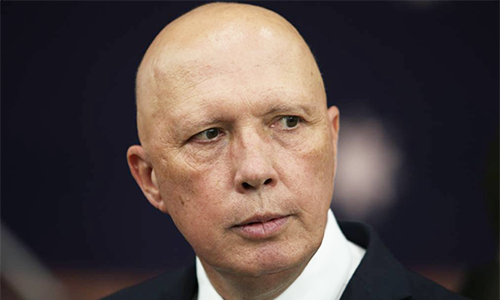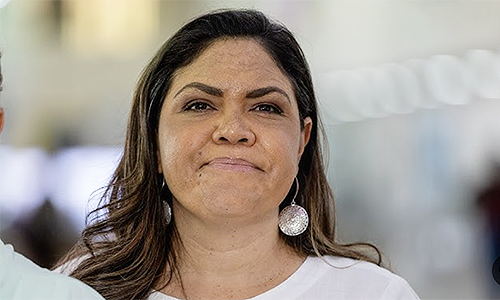On October 6, 1973, Egypt and Syria launched a surprise attack on Israel, marking the beginning of the Yom Kippur War, the fourth of the Arab-Israeli wars. The West’s support for Israel in this war led to the revenge oil embargo imposed by the Arab-controlled Organisation of the Petroleum Exporting Countries (OPEC) which triggered the global oil crisis; oil prices quadrupled, a global recession ensued, and mass inflation and unemployment followed. The 1973-74 oil crisis revealed the West’s vulnerability to Middle Eastern oil and their willingness to sacrifice Israel for economic gain as they acquiesced to Arab demands. Fast forward to October 7, 2023, the conflict in the Middle East resembles the ‘oil politics’ of 1973 with one key and critical difference: the West’s dependence isn’t solely on Middle East oil and gas, but broader financial interests creating an existential conflict between Western values and Islamic extremism.
In recent news, Middle Eastern investment in the West has made headlines with US President Trump announcing a 1.2 trillion-dollar economic investment plan with Qatar and a historic 600-billion-dollar investment commitment with Saudi Arabia. Investment like this has been increasingly focused on sectors such as real estate, technology, media, and sports over the past decade, with several Middle Eastern countries strategically expanding their influence in Western economies through sovereign wealth funds and high-profile acquisitions. This is particularly true of the UK where Qatari investment is worth over 100 billion dollars.
The extent of Middle Eastern investment in the West is deep and the purpose is intended to shape perceptions and strengthen diplomatic ties. These countries use their vast financial resources to integrate into Western economies, gaining leverage and influence. But at what cost? Qatar’s growing influence should raise serious concerns for Western nations as Qatar not only harbour and protect Hamas leaders, a designated terror entity, but also actively engage with the Islamic regime of Iran, a regime known for its corruption, authoritarianism, and funding of terrorist organisations. Qatar has invested billions of dollars in funding American and UK university professors, programs at universities, and curricula in public schools, and some say this may be contributing to the rise in antisemitism.
Other Middle Eastern nations, such as Saudi Arabia and the UAE, have poured substantial funds into Western educational institutions from research projects to scholarships, shaping academic discourse in their favour. Whilst foreign investment between nations is commonplace, it raises concerns about the long-term effects on Western thought, ideology, academia, and media, which are areas that shape public opinion and policy. These influences have significant implications on how countries behave during conflicts, potentially altering diplomatic responses and shifting narratives to align with foreign interests. Couple this with major imports of oil and gas, the US, China, Japan, South Korea, and India remain significant importers of Middle Eastern oil, which supplies over 20 per cent of global demand. At the same time, Qatar, exports liquefied natural gas to over 20 countries across Asia, including Australia, as well as Europe and the Americas, further solidifying its position as a key player in global energy.
Rewind to 1973 during the geopolitical backdrop of the Cold War, Western nations were locked in an ideological struggle between capitalism and communism, with powers vying for influence in the Middle East – their primary concern being control over oil resources. At the time the US alone imported approximately 83 per cent of its oil from the Middle East. Essentially, the Yom Kippur War of 1973 erupted on a background of territorial and political triggers which sparked an indirect confrontation between the US and the Soviet Union as they defended their respective allies; the Soviet Union supported Egypt, Syria, Jordan, Iraq, Saudi Arabia, Kuwait, Algeria, and Libya against Israel, who was supported by various Western nations including the US, Canada, the UK, and Australia.
In retaliation for Western support for Israel, the Arab-controlled OPEC led by Saudi Arabia’s King Faisal, imposed an oil embargo leveraging oil as a powerful geopolitical tool. This was OPEC’s ‘power play’ over the West as they demanded companies increase oil prices and cut supply. The price of oil which had been hovering around US $3 per barrel surged to nearly $12 per barrel by the end of 1974. This spike in oil led to shortages with long lines at gas stations and fuel rationing. In the US, UK, and France, ration coupons were introduced as well as fuel quotas. The oil crisis triggered global stagflation and ended post-second world war economic prosperity. There was mass social unrest, and unemployment and strikes became commonplace. Ultimately, Western nations put pressure on Israel into negotiating terms more favourable to Arab countries and to end the war, despite Israel remaining undefeated in the war. Israel was not allowed to ‘win’ over its enemies and was forced into negotiations and peace talks which led to the Camp David Accords of 1978. This war serves as the example of what happens when Western countries back Israel and sets the stage for the Western response to October 7, 2023. Once again, Western countries are caught between supporting Israel’s right to self-defence against Hamas terrorists and maintaining their economic relationships with Middle Eastern countries. Western countries are not only supporting their economies in dealing with Middle Eastern nations, but also having to pipe a tune to their large and restive domestic Muslim populations.
Reflecting on the beginning of the Gaza War at the start of 2023, the peak of the Covid pandemic had only just ended in 2022, the previous year. The pandemic caused massive inflation, disrupted supply chains, and increased cost of living placing widespread pressure on the global economy. Adding to this, the Russia-Ukraine conflict which began in February 2022, disrupted oil and gas supplies drove prices to new heights affecting Europe, the US, and Australia. This set the stage for the response to the Gaza War. In the wake of October 7, 2023, with the worst terrorist attack on Israel in history, the global economy was weak, fragile, and in desperate need of repair. The last thing the EU, the UK, the US, and Australia wanted was an all-out Middle Eastern war against the Iranian regime’s terror proxies nor to upset Qatari interests that overwhelmingly support Hamas’ extremist actions against Israel. Further destabilisation of already strained Western economics was imminent.
Call me cynical, but as the West has been courting Middle Eastern investment from terror-supporting nations like Qatar and to an extent Iran, we face the harsh reality that Israel is the sacrificial lamb, offered up at the behest of oil, gas, and strategic alliances, all in the name of preserving economic stability. In doing so, the West not only compromises its values but risks prolonging the conflict, just as it did in 1973, when Israel was forced into ceasefires and negotiations rather than being allowed to fully defeat those who sought to destroy it. This pattern continues today, with Israel once again denied the chance to defeat its enemies and secure its survival, while the West, driven by its own financial and geopolitical interests, continues to fuel the very extremism it claims to oppose.










